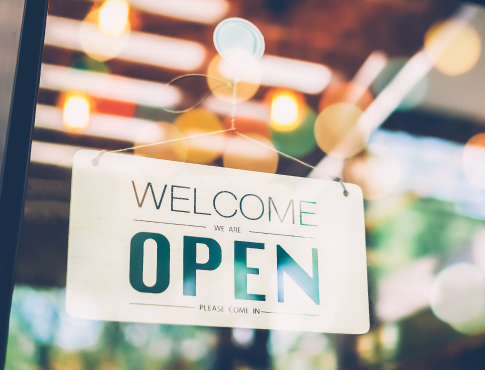Here to Support Small Businesses
*Flatwater Bank has prepared this information with the most current information we have received. There has been an evolution in details as programs are being finalized. This is the most current information we have available. Refer to the treasury.gov and SBA.gov websites for additional details. We are committed to keeping you updated as we receive additional information. Information updated as of 5/6/2021.
- Are not eligible to use the Form 3508S, and
-
Did not reduce salary or wages for any employee by more than 25%, and did not reduce the number or hours of their employees (except laid-off employees who refused an offer to return), OR
-
Did not reduce salary or wages for any employee by more than 25% during the covered period, and experienced reductions in business activity as a result of health directives related to COVID-19, OR
-
Applied for the PPP loan as self-employed, an independent contractor, or a sole proprietor with no employees.
- The COVID-19 Relief Act passed in December of 2020 repealed the deduction of EIDL advances from PPP forgiveness.
- The SBA is currently accepting new EIDL applications for U.S. businesses and agriculture producers.
- Maximum Loan Amount = $500,000 based on economic injury as determined by SBA
- Does it include loan forgiveness/grant? SBA may provide up to $10,000 in emergency grants to EIDL applicants that need it. Applicants do not need to repay the grants even if the loan is denied.
- Interest Rate = 3.75% for businesses and 2.75% for non-profits
- Loan Term = up to 30 years
 The U.S. Small Business Administration (SBA) is offering low-interest federal disaster loans for working capital to small businesses that are suffering substantial economic injury as a result of the novel coronavirus.
The U.S. Small Business Administration (SBA) is offering low-interest federal disaster loans for working capital to small businesses that are suffering substantial economic injury as a result of the novel coronavirus.
Uses for this loan option, include paying fixed debts, payroll, accounts payable and other bills that can't be paid because of the disaster's impact. The interest rate is 3.75% for small businesses without credit available elsewhere; businesses with credit available elsewhere are not eligible. The SBA offers loans with long-term repayments in order to keep payments affordable, up to a maximum of 30 years. Terms are determined on a case-by-case basis, based upon each borrower's ability to repay.
For more details on the program, visit www.sba.gov/coronavirus.
If you are thinking of applying, here's what you can do to get started now with forms you'll need and be ready to go when the portal opens:
- Tax Information Authorization (IRS Form 4506T) for the applicant, principals and affiliates.
- Complete copies of the most recent Federal Income Tax Return.
- Schedule of Liabilities (SBA Form 2202).
- Personal Financial Statement (SBA Form 413).
- Profit and loss statements
- Monthly sales figures (SBA Form 1368)
- Small Business Administration (SBA) Disaster Loan Information and Resources
Nebraska Department of Economic Development:
The Department of Economic Development is partnering with Governor Ricketts to inform and assist businesses during Nebraska’s ongoing response to COVID-19. The department’s Field Services Team is working consistently with business leaders in these regions to address ongoing COVID challenges. Contact numbers for our staff in these regions are listed on the site.
Nebraska Chamber of Commerce and Industry:
This page is designed to provide the latest information to Nebraska businesses from the Nebraska Chamber of Commerce and Industry. Included on this page are resources available to from state and federal agencies.
Nebraska Department of Labor:
The page provide unemployment program information and assistance from the Nebraska Department of Labor.
IRS:
Learn more about the U.S. Treasury Department, Internal Revenue Service (IRS), and the U.S. Department of Labor (Labor) announcement regarding small and midsize employers who can begin taking advantage of two new refundable payroll tax credits, designed to immediately and fully reimburse them, dollar-for-dollar, for the cost of providing coronavirus-related leave to their employees.
Workplace Safety (OSHA):
This guide covers topics related to ensuring your workplace is safe, tips on reducing risk, steps to take if a COVID-19 outbreak would occur and much more.
 At times like these, we especially need to be wary of business fraud. We ask that you please be diligent about confirming the authenticity of payments that are being sent out from your business. This would include checks, wires, bill and ACH payments, and any other forms of payment.
At times like these, we especially need to be wary of business fraud. We ask that you please be diligent about confirming the authenticity of payments that are being sent out from your business. This would include checks, wires, bill and ACH payments, and any other forms of payment.- Actively seek PII
- Search a third-party platform for or by PII, or
- “Follow” public users proactively without a waiver.



